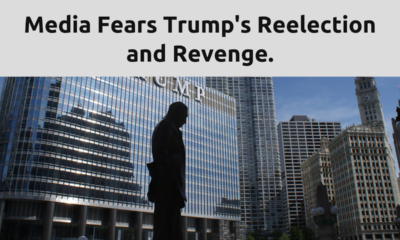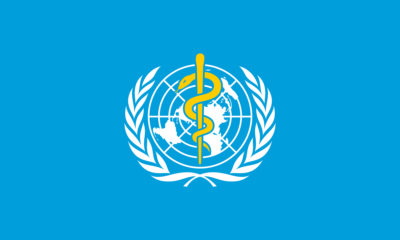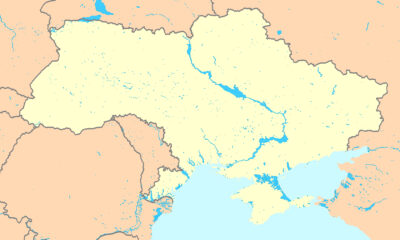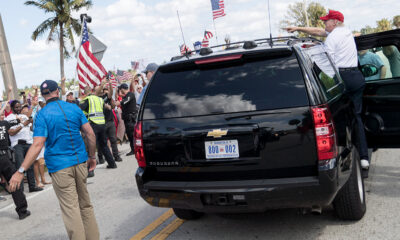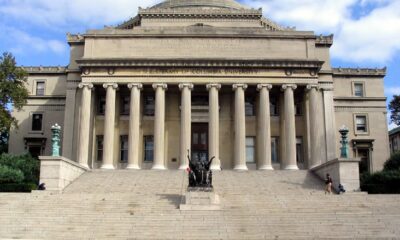Constitution
Kennedy, Musk talk politics
Robert F. Kennedy, Jr., and Elon Musk had their promised Twitter Spaces interview, in which he laid out his Presidential platform.
Yesterday, as promised, Robert F. Kennedy, Jr. had his Twitter Spaces interview with Elon Musk, Tulsi Gabbard, and several others. He has little chance of taking the Democratic Presidential nomination away from Joe Biden. Neither can CNAV endorse him, for his positions bespeak naivete at best, dissemblance at worst. But he brings attention to many issues the Democrats would prefer to ignore. And when he loses the nomination, as he must, a lot of Democrats will sit on their hands next November.
The Kennedy and Musk interview
The interview began at 2:15 p.m. EDT, or fifteen minutes late, and ran for about two hours and fifteen minutes. Technical difficulties were minimal and consisted of occasional cutoffs affecting the speakers – who didn’t always know that the servers had cut them off. Happily such cutoffs rarely lasted more than fifteen seconds. In short, this Space behaved much better than the Space for Gov. Ron DeSantis (R-Fla.) two weeks ago.
For the first hour, Mr. Kennedy interviewed Mr. Musk, not the other way around. Why Musk allowed it, he still hasn’t said. The Presidential candidate wanted to know several things relating to:
- The relative freedom Twitter users enjoyed, and
- Whether Neuralink, another Musk company, and its products threaten to change what it means to be a human being.
Both of these relate directly to issues near and dear to Kennedy’s heart (or at least that’s what he says). Censorship affects him directly, because his Children’s Health Defense has an anti-vax position rivaling that of Barbara Loe Fisher’s National Vaccine Information Center. And as he said on the Space yesterday, transhumanism concerns him at least as much as vaccines. Transhumanism refers to a movement essentially to blend man and machine.
Musk gives assurances.
Concerning this last, Musk assured his guest that he had no desire to change human beings. Instead he has set out to restore function to those who had lost it. That function could be anything from motor control over a limb to vision and hearing.
Musk had a more powerful thing to say about censorship. Twitter, he said, had lost half its advertising revenue since he largely discontinued the censorship regime. That, he said, would not persuade him to reinstate any part of that regime. He said nothing to Kennedy about his discovery last week of troublemakers within his organization. (Musk fired several of them over Matt Walsh’s documentary, What is s Woman.)
During the general question-and-answer period, the candidate did reveal a particular point of disagreement with his host. He does not like nuclear power, and cited the “un-insurability” of nuclear power plants as evidence for their inherent danger. (Worse yet, he cited the Fukushima reactor, which suffered damage in the March 2011 Tohoku Earthquake and Tsunami. Perhaps no one told him that Fukushima had an obsolete design.)
Musk, at his earliest opportunity, reminded his listeners that he is a strong proponent of nuclear energy as a necessary interim replacement for fossil fuels.
General questions and answers
That last was the only time, other than during his one-on-one with Kennedy, that Musk said anything about his own positions on any particular issue. On every other issue he let his guest and the questioners do the talking. These included former Rep. Tulsi Gabbard (D-Hawaii), who held forth on why she left the Democratic Party.
Tulsi Gabbard deserves special mention. The Democratic Party she originally joined, stood for world peace (largely through a new non-aggressive posture) and for the interests of what she called the “little people” against corporate interests. Today’s Democratic Party, she says, has forgotten those principles. It now stands for war as an instrument of foreign policy, and the interests of certain favored corporations.
Lately she has warned about legislation that could have labeled half the country as domestic terrorists. But she sounded her loudest alarm about biological weapons development laboratories in Ukraine. Laboratories with American funding, under American direction, with American staffs – as the Russian Federation recently confirmed.
Kennedy echoed her refrain. He does not seem to know the real reason for Putin’s invasion of Ukraine. But he offered blistering criticism of the Biden administration for refusing even to consider a negotiated settlement. Of course they wouldn’t, he said – because Biden has surrounded himself with “neoconservatives,” who all are spoiling for a war. (And serving the interests of the nation’s armorers, also known as “defense contractors.”)
Kennedy on the issues
Throughout the two-hour-plus session, Mr. Kennedy staked out his positions on at least some issues. Of course he stands squarely against mandatory vaccination. In fact he offers a curious history. Until the end of the last century, no drug maker could market prescription drugs directly to patients. Your editor can vouch for this. Until the Eighties, prescription drug marketing was limited to “Continuing Medical Education Rounds” in hospitals. Company representatives – the “detail men” as most doctors called them – would extol the virtues of their drugs at what the doctors called “refresher courses” in their areas of practice. Abuses of the Continuing Medical Education system will have to wait for another opportunity for discussion. But this fact remains: these CME sessions were the full extent of drug marketing.
But with direct-to-patient advertising, drugs firms “entered the consumer advertising space.” And they dominated the industries from whom they bought advertising time. News media especially need their advertisers more than their advertisers need them. That holds especially for multinational corporations selling products most people will never need. This, Kennedy charges, produced the censorship regimes, not only on social media but also in legacy media, especially news media. In this context, of course, Elon Musk revealed that Twitter lost half its advertising revenue since his purchase of Twitter. (Though perhaps the half he still has, will remain, and he has shaken loose some annoying shackles.)
The candidate pledged that, if elected, he would issue an Executive Order forbidding any repeat of the censorship regime.
Immigration – and gun control
Kennedy differs sharply from Biden and most prominent Democrats on immigration. He sees the current class of immigrants as depressing Americans’ wages. Accordingly he spoke of sealing the border.
On gun control he gave an almost tentative message. A user calling herself The Redheaded Libertarian gave this summary:
He said he would not “take anyone’s guns,” after explaining that the Supreme Court’s current case law won’t allow it. Since he mentioned the name of Antonin Scalia, one assumes he was talking about the two D.C. v. Heller cases. Those were the first to establish that the Second Amendment protects an individual right. Justice Clarence Thomas would later expand on this in New York State Rifle and Pistol Association v. Bruen. Kennedy doesn’t seem to think that right or proper – but he recognized the futility of a direct argument against it.
Then he touched possibly on a true thing: the role of antidepressant and antipsychotic medication in producing a class of negative thinkers with too little impulse control.
But that aside, he seemed to be trying to convince leftists to come to his side – and did not notice how his words would sound to others. “I lost two family members to gun violence,” he said, obviously referring to his father (1968) and uncle (1963).
In reply
CNAV would offer this in reply. Mr. Kennedy, you might be correct about the over-medication of Americans for depression and psychosis. But do you or anyone else really think you can solve the “gun violence” problem through confiscation of weapons? You showed good grace in accepting the Heller regime as binding against any such order by you. But that’s not the same as understanding the folly of the proposal that was on the tip of your tongue.
If you want less violence, you need more, not fewer, guns in civilian hands. More Guns, Less Crime reads the title of a book by John R. Lott, Jr. (Available with free registration from Academia.edu at that link.) More to the point, the Constitution clearly recognizes the right of individuals to keep and bear arms. Even if a confiscation regime could work, it would still be in violation.
And last: true enough, you lost an uncle and a father to homicidal attack with a gun. But their attackers did not choose them at random. Your father and uncle lost their lives because they got too close to an elite that has established total control and won’t let that go. Such determined enemies would never let a confiscation regime deter them.
Conclusion
In summary, CNAV cannot endorse Robert F. Kennedy, Jr. for President. He understands only partially the issues upon which he touches, and the connections among them hardly at all. For example, he repeats the canard that Vladimir Putin is in the wrong in Ukraine. Didn’t he notice when Tulsi Gabbard reminded him of the presence of American biological weapons development laboratories in Ukraine? At another point he in fact pledged to negotiate a total mutual biological weapons disarmament treaty. That might indeed be a valid exercise – but can’t he recognize that Putin is dealing with that very threat? (Though he did recognize that the “neocons” broke faith with the world, and with Russia, with their long-range plan to push NATO to the Russian border.)
Also, he says he stands for free markets and free enterprise. But he does not articulate positions consistent with that. Some of his policy prescriptions – like rescinding the allowance of direct-to-patient advertising of prescription medicines and devices – might be correct. But implementing these on the wrong grounds plants the seeds of Sovietization – literally putting “councils of workers and soldiers” in charge of the means of production, distribution and exchange. That is at least as great an evil as the current regime, even if that regime does resemble Italian Fascism. (Or German National Socialism, apart from the racism that characterized the latter.)
Kennedy on the right wing? Huh?
Still, this interview cannot fail to embarrass the national Democrats, in the eyes of their constituents and indeed all Americans. So embarrassing must his interview have been, that The New York Times accuses him of “pushing right-wing ideas and misinformation.” Similarly, Yahoo! News accused him or promoting “anti-vaccine conspiracy theories.”
See how these and other news organs still, at this late date, promote preparations that are weapons of mass murder. That clearly says more about them than about Kennedy – and if anyone was going to lead them to embarrass themselves, Kennedy was the man to do it. And lead them he has.
Indeed Harris Faulkner mentioned that black Democrats might prefer the “anti-vaccine” candidate to Joe Biden. She might have mentioned his book, The Real Anthony Fauci, in which he flatly accuses the good doctor of subversion. (And in that he is probably correct.)
For those reasons, the Democratic Party will not let him have the nomination, no matter what their constituents think. That could very likely lead many Democrats to sit out the Election of 2024.
Terry A. Hurlbut has been a student of politics, philosophy, and science for more than 35 years. He is a graduate of Yale College and has served as a physician-level laboratory administrator in a 250-bed community hospital. He also is a serious student of the Bible, is conversant in its two primary original languages, and has followed the creation-science movement closely since 1993.
-

 Education4 days ago
Education4 days agoCHAPTER 11: Critical Race Theory: A Species of the Ideological Thought Genus Marxism
Space Is No Longer the Final Frontier—Reality Is [forthcoming release May 2024] -
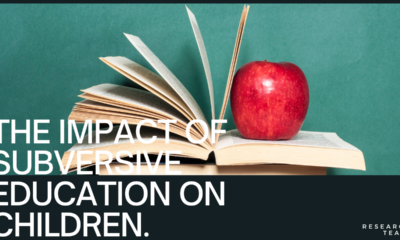
 Civilization3 days ago
Civilization3 days agoCHAPTER 12: Seeding Race Wars
Space Is No Longer the Final Frontier—Reality Is [forthcoming release May 2024] -
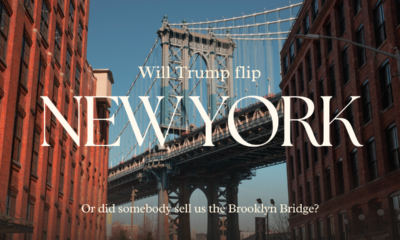
 Civilization3 days ago
Civilization3 days agoWill Trump flip New York?
-
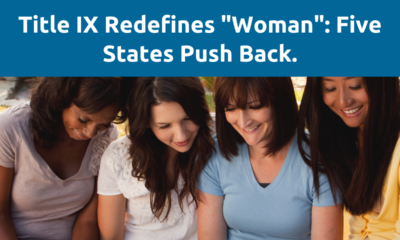
 Education2 days ago
Education2 days agoTitle IX revision sparks State revolts
-
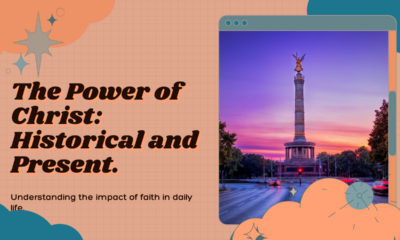
 Clergy4 days ago
Clergy4 days agoHistorical Points Have Their Place, But That Is Not Where Your Faith Is To Stand!
-
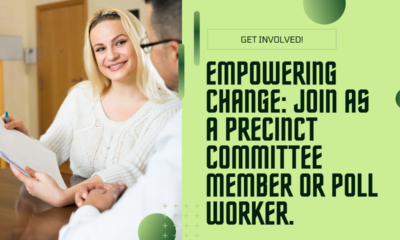
 Constitution1 day ago
Constitution1 day agoPrecinct Strategy scores again
-
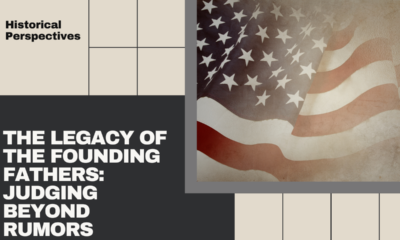
 Education3 days ago
Education3 days agoDid the Freemasons, Illuminati, Spiritualists and Mystics establish this country?
-
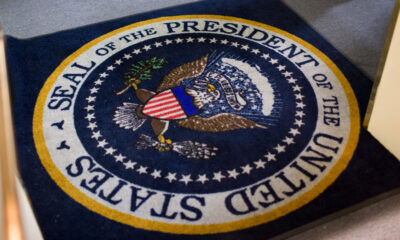
 Executive5 days ago
Executive5 days agoImmunity for Me but Not for Thee



